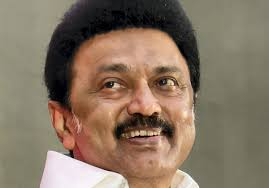DMK MPs will make their voices on TN’s rights heard in Parliament, says CM Stalin

Tamil Nadu Chief Minister M.K. Stalin has assured that DMK Members of Parliament (MPs) will actively represent the state’s rights in the national Parliament. He spoke at a recent party event, emphasizing the need to protect Tamil Nadu’s interests on many fronts. These include federal autonomy, economic growth, language, culture, and social welfare. Stalin reaffirmed the DMK’s commitment to ensuring the state’s concerns are heard clearly in New Delhi.
A Strong Stand for Tamil Nadu’s Rights
The DMK has a long history of supporting state autonomy within India’s federal system. For decades, the party has defended Tamil identity, language, and fair development. Stalin’s statement reflects a growing trend of regional parties asserting their influence at the national level. He noted that Tamil Nadu has a unique culture shaped by its language and social progress. Therefore, it is vital to safeguard these features.
Stalin expressed confidence that DMK MPs will raise important questions in Parliament. They will debate policies and suggest measures that align with Tamil Nadu’s needs. More importantly, they will demand respect and recognition for the state’s voice in all major decisions.
Key Areas of Focus for DMK MPs
The DMK leadership has pinpointed several priority issues for parliamentary action:
- Water Sharing Disputes: Tamil Nadu has long-standing disputes over rivers like the Cauvery. Stalin said DMK MPs will keep pushing for fair water sharing to protect farmers’ livelihoods.
- Language and Culture: Tamil holds a special place in the hearts of the people. Stalin stressed that DMK MPs will oppose policies that weaken Tamil or promote Hindi over regional languages.
- Economic Development: The party seeks increased Central support for Tamil Nadu’s industries. Stalin highlighted the need for investment in manufacturing, IT, and renewable energy sectors.
- Social Welfare and Education: The DMK supports policies that uplift marginalized groups. MPs will press for better education, health, and welfare programs targeting weaker sections.
- Federalism and Autonomy: Stalin reaffirmed the party’s belief in stronger federalism. This means giving states more power over governance and resources, including GST reforms and local self-government.
Political Context and Implications
The DMK’s firm stance in Parliament is part of a wider trend. Many regional parties are reclaiming their voice in national politics. With a large number of MPs from Tamil Nadu, the DMK aims to become a key voice for southern India.
Experts say this can influence policymaking and budget decisions. The DMK’s efforts may increase the state’s share of resources and legislative attention. It could also energize the party’s supporters before upcoming elections, reinforcing its image as Tamil Nadu’s protector.
CM Stalin’s Leadership and Vision
Since becoming Chief Minister in 2021, Stalin has balanced governance with political advocacy. Known for being pragmatic yet firm, he focuses on development and social justice. His promise about DMK MPs’ role fits his vision of a Tamil Nadu respected nationally.
In recent months, Stalin has worked with other regional leaders to promote cooperative federalism. His approach stresses constructive dialogue and negotiation over conflict. He believes that through democratic means, Tamil Nadu can achieve its goals.
Voices from DMK MPs
Several DMK MPs have echoed Stalin’s commitment. They say they are ready to vigorously raise Tamil Nadu’s issues. They stress unity within the party and with other regional allies to strengthen their impact.
MPs have also pointed out challenges faced by their constituencies. These include infrastructure needs, environmental concerns, and better health access. They see their role not only in lawmaking but also in advocacy and oversight.
The Road Ahead
As the DMK leverages its parliamentary presence, Tamil Nadu is likely to become more visible in national debates. This could involve discussions on budget allocations, language policy, environmental laws, and social programs.
The DMK’s focus on state rights may inspire other parties to push for a more balanced federal system. For Tamil Nadu’s people, this means a stronger voice in shaping policies affecting their daily lives.
Conclusion
Chief Minister M.K. Stalin’s promise that DMK MPs will firmly advocate Tamil Nadu’s rights marks a renewed push for autonomy, development, and cultural pride. It highlights the DMK’s role as a key regional party aiming for a fairer federal India that respects all states.
With upcoming parliamentary sessions, all eyes will be on DMK MPs to see how well they turn these promises into results for Tamil Nadu.






